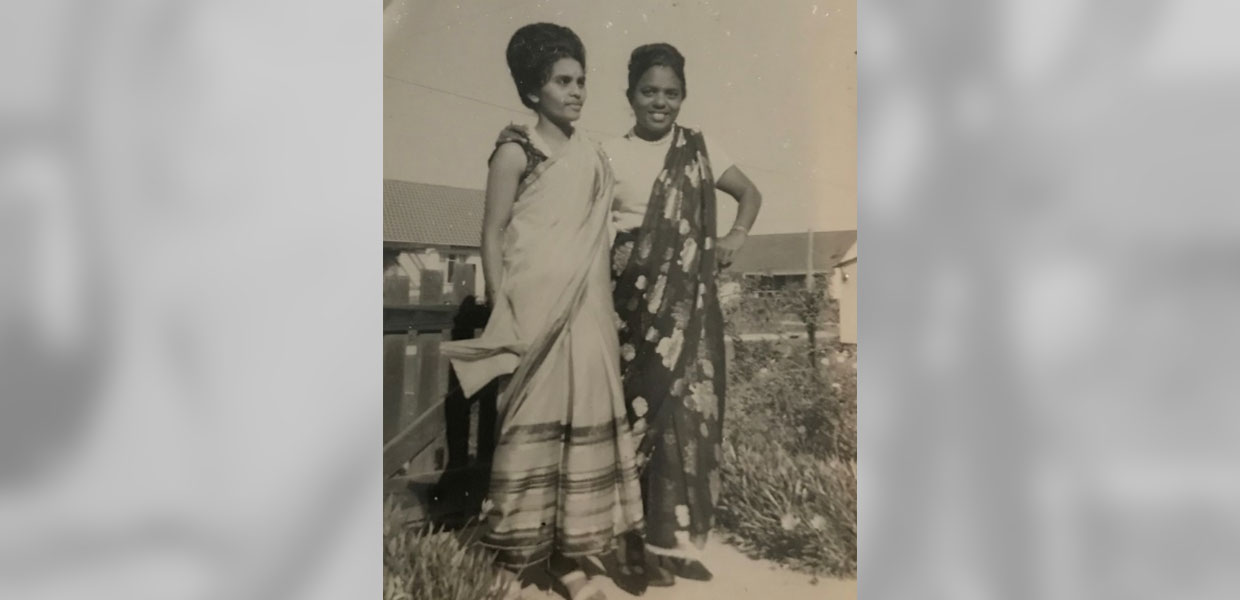
Submitted by Ashley Bloemetjie
It’s the mid-1900s and you are in Johannesburg, South Africa, playing in the backyard with friends. Soon, you’re summoned home for dinner, and you go inside to eat with your mother and siblings. After supper, your mother calls everyone into the bedroom that she shares with your father, and she pulls out a book filled with stories about a man named “Jesus” and his disciples and the numerous prophets that God had called forth. She reads this until you hear the door open and your father’s heavy footsteps coming toward the room. Quickly, your mother hides the book. It has to be kept secret for the sake of peace in your family.
That is what Jane Bloemetjie’s life was like as a child. At the time, she didn’t really know that she was growing up in a Muslim household. She didn’t label it as that, it was just growing up for her. But, when she became aware of the fact that her mother’s beliefs were straying from that of her father’s, that’s when the label became more noticeable.
It started slowly with her mother returning tithe (the act of giving 10 percent of your earnings to God), and then she told the children about the Sabbath and how she wanted them to start keeping the day holy. Then she started having a small church service in the house, sometimes going out into nature and having church there.
“We were very careful not to let our dad know where we’d been; it was like a secret thing,” Bloemetjie disclosed in a recent interview.
Bloemetjie’s dad and his family were all Muslims and her mother’s family all of the Hindu religion, so there were obstacles during the transition. But the secret conversion didn’t stay secret for long. Once her dad found out, things deteriorated fairly quickly with arguments erupting frequently. Her father ended up leaving, and his side of the family stopped communicating with her mother’s side.
As Bloemetjie grew older, and completely converted over to Christianity, she noticed that she was a lot freer. For instance, she was able to go to college and get an education.
“Muslim girls were not supposed to at that particular point in time,” she said. “In fact, girls in general — but Muslim girls especially — were not supposed to have a continuing education, and so my father saw no need for me to go to college.
“My mom wanted me to go, and so against the odds, against my dad…I applied for scholarships, and I knew I had my mom’s support,” she recalled. “… If I had really given into the pressure from my dad, I would never have been able to go to school.”
Bloemetijie also would have never met her husband if she had stayed within the Muslim faith. She would not have the family that she does now — her three children and her six grandchildren — if she hadn’t been converted.
Bloemetjie taught what she learned to her children and grandchildren when they were young, allowing them to grow up in the Christian faith. But she has never lost respect for the Muslim religion and her family’s community. It remains a part of who she was — and who she is.
This article was submitted as part of a summer Journalism camp conducted by Southern Adventist University’s School of Journalism and Communication. The camp, taught by the School’s professors, provided an opportunity for high school students across the country to learn about writing and photography.
Southern Union | September 2020



Comments are closed.